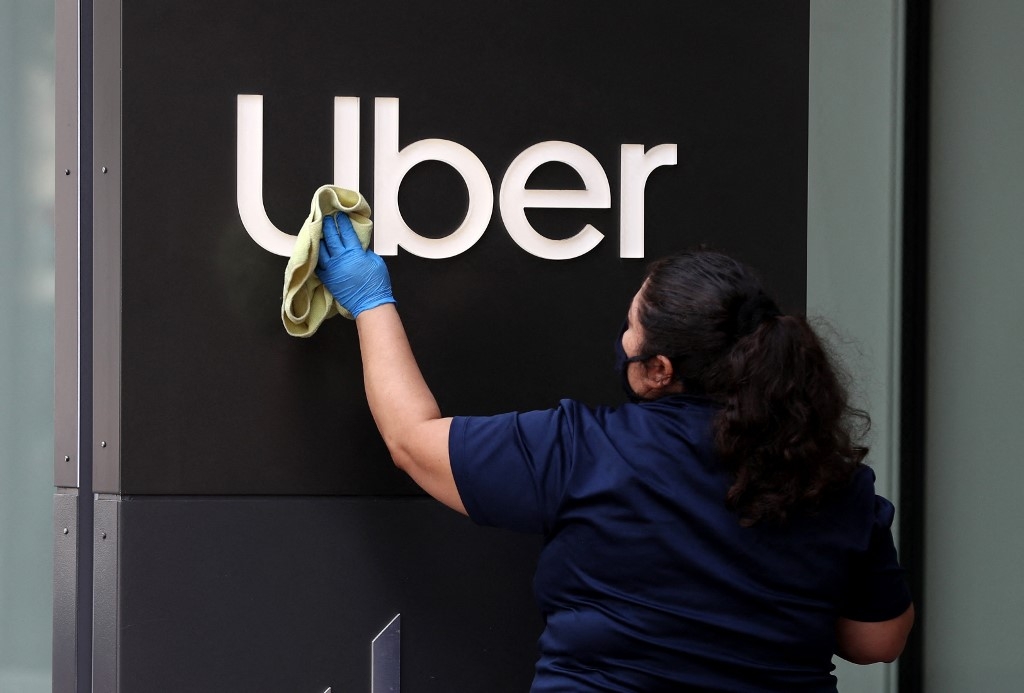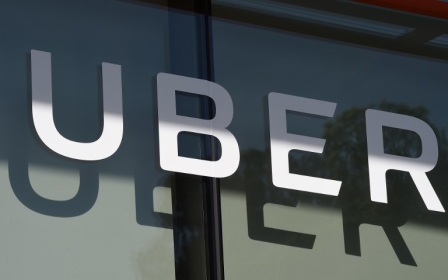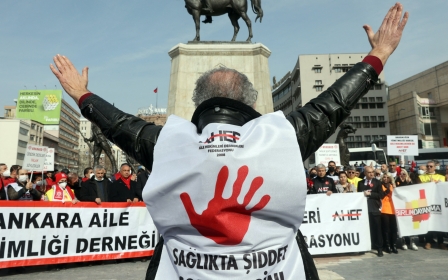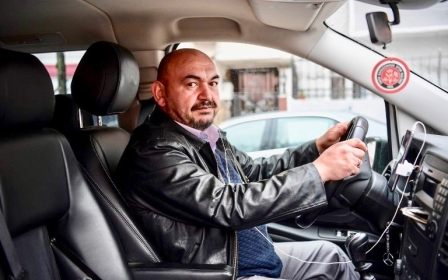Turkey: Uber 'ran aggressive lobbying campaign' to obtain licence but failed

The American tech company Uber secretly lobbied Turkish officials and hired well-connected lobbyists to legalise its rideshare operations in Turkey but eventually failed, according to the Uber Files published by Deutsche Welle Turkish on Sunday.
The San Francisco-based company entered the Turkish market in 2014 by using a legal loophole and slowly but steadily increased its number of drivers from 3,000 to well over 10,000 by 2018, when a court ruling declared Uber's private car service for passengers was illegal.
The company paid tax for its 20 percent commission it gets from the drivers to Turkish authorities only in late 2018, according to the report.
The company was able to grow and establish itself between 2014-19 without any official licence or permit thanks to its aggressive lobbying activities, the report added.
The cache of leaked files was obtained by the Guardian and shared with 42 media partners by the International Consortium of Investigative Journalists. The documents span 2013 to 2017, include more than 83,000 emails, iMessages and WhatsApp messages, between senior Uber executives.
The leak of records reveals how Uber used controversial tactics to enter new markets, spending a huge amount of cash to win favours from government officials, regulators and politicians.
Beginning in 2014, Uber used aggressive lobbying activities to obtain a licence from the Turkish authorities by contacting people close to the Turkish president Recep Tayyip Erdogan and senior ministers such as Ali Babacan and Mehmet Simsek.
Uber, knowing that the taxi owners sway a powerful lobby in the government, tried to reach Erdogan’s entourage to run an influence campaign and targeted unlicenced taxi drivers for its operations, guaranteeing that it would pay any fines that they would receive.
The company first contacted Cuneyd Zapsu, one of the founders of the ruling Justice and Development Party, (AKP), who has a private consultancy company that provides services for investment in Turkey.
Lobbying officials
Zapsu’s firm, in a December 2014 proposal, asked Uber to pay in total $150,000 for three months of work in which Zapsu’s team would determine 30 senior Turkish officials from the interior ministry, transportation ministry and treasury ministry, taxi owners and media company owners for lobbying efforts.
Zapsu’s firm also said that it would help Uber to establish the right communications channels for before and after 2015 elections.
Uber, according to the documents, decided not to hire Zapsu for being too expensive and losing its influence within the government and looked for other venues such as trying to reach out to construction company owner Hasan Gursoy, who is friends with Erdogan from his high school years.
The senior executives said in the communications that Gursoy was interested in what Uber does and he could convince the Turkish government to ignore what it is doing in the country.
The Uber executives later met Deputy Prime Minister Ali Babacan and Treasury Minister Mehmet Simsek in 2015. The executives in their notes said Simsek was very innovative and supportive of Uber’s entrance to the Turkish market. Simsek advised them to talk to the Turkish revenue administration and review the Twitter law.
However, Uber failed to achieve its strategic partnership goal with the local Turkish companies, as many local firms refused to cooperate, citing the tense political environment in the country in September 2015 and fear from the taxi lobby.
Uber later hired NT Consultancy, which is jointly run by former Turkish ambassador to Washington Namik Tan and Ekim Alptekin, who was then the head of Turkish American Businessmen Association, for $35,000 per month for three months to obtain a licence.
In January 2016, the Uber associates said they made some progress with NT Consultancy but more work was needed. It isn’t clear whether Uber signed a year-long contract with this company for a monthly $20,000 and additional bonuses.
Failed efforts
Uber, according to the files, also used Turkish media to influence the public by making special visits to Turkish newspapers like Sabah and Hurriyet, which were running stories of Uber in a positive light.
Fatih Altayli, a prominent columnist who was described as "pro-government" by the executives, also penned two columns on Uber.
However, Uber’s lobbying efforts failed as a local court banned the company's website on 16 October 2019 for using vehicles that have tourism transportation licences for taxi activities. In 2020, another local court only permitted Uber to use local taxis as partners and lifted the ban.
Uber, in a statement to DW Turkish, said that it was now “a different company” and accepted that its past practices were inconsistent with its current values.
The company said it changed its business model in September 2017 and hired a new CEO, Dana Khosrowshahi, adding that it deployed additional internal inspection mechanisms to establish transparency in its interactions with the government and prevent similar issues in the future.
This article is available in French on Middle East Eye French edition.
Middle East Eye delivers independent and unrivalled coverage and analysis of the Middle East, North Africa and beyond. To learn more about republishing this content and the associated fees, please fill out this form. More about MEE can be found here.






